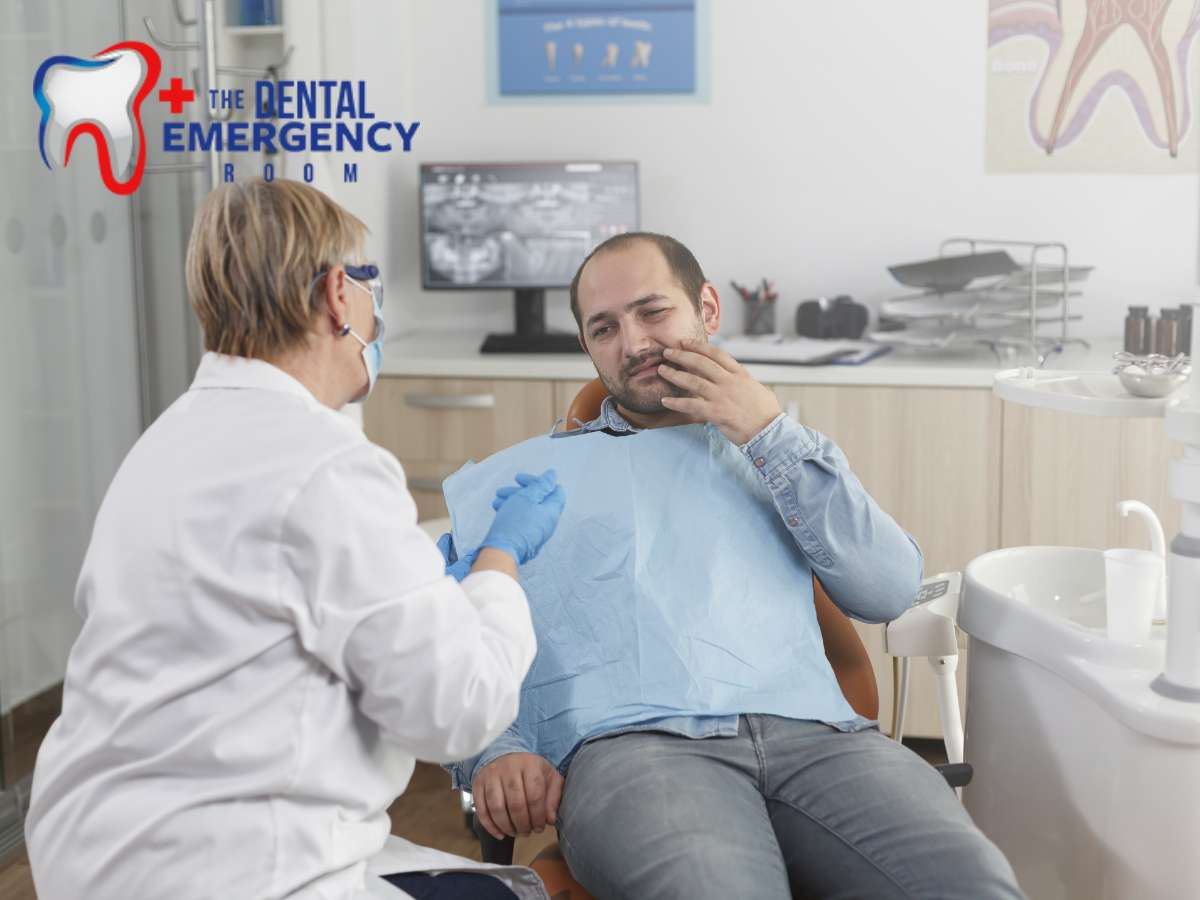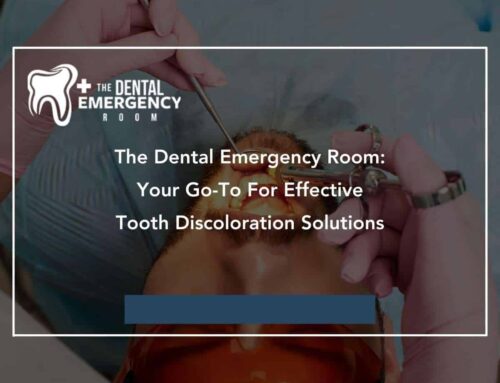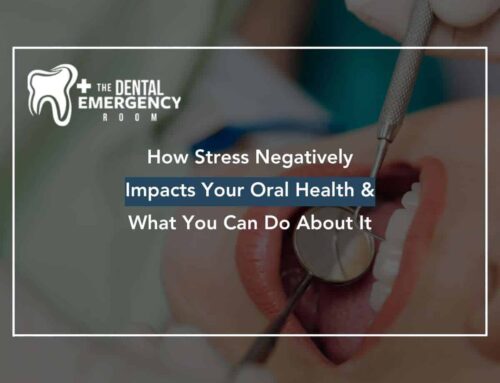Key Causes & Potential Consequences Of Tooth Infections
A mild toothache might not raise alarms at first because it’s easy to chalk it up to sensitivity or maybe something you ate. But if that discomfort sticks around, intensifies, or starts radiating, it could be your body’s way of flagging a deeper issue: a tooth infection. When left unchecked, the infection doesn’t stay put—it can easily spread beyond the tooth, affecting the jaw, facial tissues, and even entering the bloodstream.
Once a dental infection begins to spread, the stakes rise quickly. What started as a simple ache becomes a potential risk to your whole-body health. That’s why recognizing early signs is so important—it gives you the chance to take swift action, avoid serious complications, and stay ahead of escalating health concerns.
In this guide, we’ll break down how tooth infections progress, what red flags to be aware of, and when it’s time to call an emergency dentist in Clearwater.
What Causes a Tooth Infection?
A tooth infection (also called a dental abscess) happens when harmful bacteria enter the inner layers of the tooth or the surrounding area, leading to inflammation and pus. This process usually happens when the protective outer layers of the tooth are weakened or damaged.
Here are some of the most common causes:

- Cracked or broken teeth: Even a small crack or chip can create an entry point for bacteria.
- Gum disease (periodontitis): Infected gums can pull away from the teeth, creating pockets where bacteria grow and spread to the roots.
- Old or leaking dental work: Worn fillings, crowns, or dental restorations can allow bacteria to sneak beneath the surface and infect the tooth.
- Trauma to the tooth: A blow or injury can damage the pulp even without visible cracks, eventually leading to infection.
- Poor oral hygiene: Skipping brushing, flossing, or regular dental visits lets plaque and bacteria build up, increasing the risk of infection.
In short, any condition that allows bacteria to reach the tooth’s inner pulp or surrounding tissues can lead to infection.
Good oral hygiene is crucial to avoid this, but if you think you already have a tooth infection, the best thing to do is call an emergency dentist in Clearwater as soon as possible.
Health Risks From a Spreading Tooth Infection
A tooth infection might seem like a local issue at first, but when the bacteria break through and enter your bloodstream, the problem can easily escalate fast and impact areas well beyond your teeth and gums.
It might not happen instantly, but an untreated dental abscess can spiral into something far more serious. That’s why understanding the broader health risks is key to recognizing when it’s time to act.
Here are some of the more severe health complications that can appear when a tooth infection spreads:
Cellulitis
This is a bacterial skin infection that can develop if oral bacteria seep into the soft tissues of your face or neck. It usually shows up as swelling, redness, and tenderness.
Osteomyelitis
If the infection reaches your jawbone, it can trigger intense pain, inflammation, and even bone damage.
Cavernous Sinus Thrombosis
While rare, this is one of the most dangerous possibilities. Bacteria from a dental infection can travel through blood vessels and reach the cavernous sinus—a vein near the base of your brain. The result? Severe headaches, swelling, and vision disturbances. This condition is a medical emergency.
Parapharyngeal Abscess
When infection pushes into the deep tissues around the throat, it can form a pocket of pus that interferes with basic functions like swallowing or breathing. It’s painful, and potentially life-threatening.
Sepsis
In extreme cases, an unchecked infection can lead to sepsis. And yes, it’s as dangerous as it sounds as it’s the body’s overblown immune reaction to bacteria in the blood. It may cause symptoms such as high fever, confusion, a racing heartbeat, and breathing difficulties.
As you can see, a tooth infection isn’t just a dental issue. It can snowball into a full-body health crisis. Catching and treating it early can make all the difference. So if something doesn’t feel right, don’t wait. Your immune system —and your overall health— depend on it.
Warning Signs That a Tooth Infection Might Be Spreading
Toothaches happen, but when the pain starts changing, so should your attention. Not every toothache is an emergency, but ignoring key warning signs can let harmful bacteria spread and cause serious damage.
If you’re noticing any of the following symptoms, your body could be telling you that a tooth infection is on the move:
- Swelling in your face, neck, or cheeks
- Fever and chills
- Trouble breathing or swallowing
- Nausea, vomiting, or feeling wiped out
- Drooping eyelids or double vision
- Persistent headaches or confusion
- Pain that spreads beyond the tooth
Even if these symptoms don’t always mean the infection has spread, none of them should be ignored. The sooner you act, the easier it is to stop the infection before it leads to serious health problems.
How Dentists Treat a Tooth Infection
Once a dentist diagnoses a tooth infection, the next step is to remove the source, kill the bacteria, and get oral health back on track. Treatment depends on how far the infection has progressed, but the most common option is draining the abscess.
Draining the abscess brings relief and helps your mouth start healing. Afterward, the emergency dentist usually prescribes antibiotics and painkillers to relieve toothache and fever.
In some cases, dentists also opt for root canals, especially when bacteria reach the tooth’s inner pulp. With the root canal, the dentist removes the infected tissue, cleans out the area, and seals the tooth to keep it safe.
In severe cases, surgery might be necessary, as a severely decayed or damaged tooth may need to be extracted if it cannot be restored.
How to Prevent Tooth Infections
A healthy smile isn’t just about appearances—it’s about keeping your whole body protected. Luckily, there are ways to prevent tooth infections in the future. The key is to stay consistent with dental hygiene and stay alert to any unusual symptoms.
Here’s a list of the things you can do to prevent tooth infections:
- Floss daily: This clears out food and plaque where your toothbrush can’t reach.
- Use mouthwash: Antibacterial rinses can help reduce harmful bacteria and freshen your breath.
- Watch your sugar intake: Bacteria thrive on sugar. Cutting back helps reduce plaque and cavities.
- See your dentist regularly: Cleanings and checkups every six months help catch problems early.
- Don’t ignore pain: A small ache might be your body’s first warning. Getting it checked out early can save you from bigger issues later.
Contact a Trusted Emergency Dentist In Clearwater If Necessary
Recognizing warning signs early, getting prompt treatment, and keeping up with your oral care routine are the best ways to protect both your smile and your overall health. However, emergencies still happen and it’s best to be prepared.
If you’re in Clearwater and think you might have a tooth infection, don’t wait. Call an emergency dentist in Clearwater at The Dental Emergency Room or schedule your consultation today. Relief is just one appointment away!

Dental Emergency Room
1935 Drew Street,
Clearwater, Florida 33765
Columbus, OH 43205
Phone: 727-449-2424









Leave A Comment